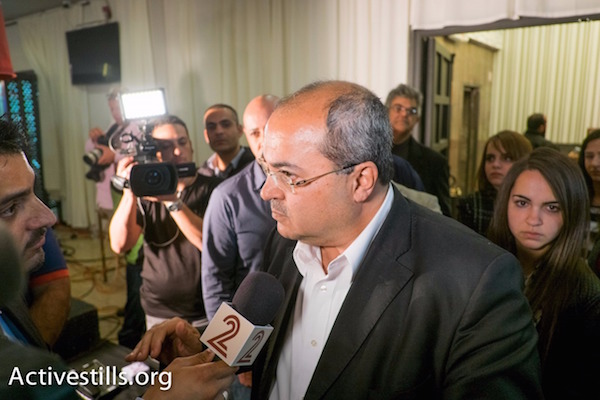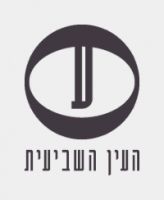A new campaign is pushing major media outlets to invite Arab experts to speak on their area of expertise. It seems the media landscape is responding — for the better.

By Oren Persico
New data reveals that leading Israeli news stations are inviting more Arab experts on news programs, following growing pressure by leading Israeli NGOs.
According to The Seventh Eye website’s “Representation Index,” around 40 Arabs were invited to speak about their area of expertise on the five leading Israeli media outlets during the month of April. This was a decrease from March, yet an increase from January and February when the index was launched.
The Representation Index provides quantitative and qualitative analysis of Arab citizens of Israel who are interviewed on leading news and current affairs programs on three major Israeli television channels (1, 2 and 10), and on radio stations IDF Radio (Galei Tzahal) and Reshet Bet. Each week, The Seventh Eye publishes data about the number and ratio of Arab interviewees during the previous week on the five channels and the 19 main news programs broadcasted in Israel.
In addition The Seventh Eye publishes more in-depth findings once a month, assessing which of the interviewees were interviewed simply because they were Arabs and which were interviewed because their area of expertise was relevant to the issue at hand.
According to April’s statistics, 38 Arab experts took part in news programs on Channels 1, 2, and 10, along with Reshet Bet and Army Radio. For the third month running, Reshet Bet is at the top of the list with 15 different experts appearing on various programs. In second place is Channel 10 (11 experts), followed by Army Radio, Channel 1, and Channel 2 (6, 4, and 2 experts respectively).
The distinction between non-expert and expert is based on the idea that Arabs who are invited to speak on programs due to their expertise are viewed in a positive light. Those who are invited to speak solely because they are Arabs are usually covered in a negative light.
Arab politicians, who are the most commonly featured in the Israeli media, are not defined as experts. For example, in April MK Zouheir Bahloul (Zionist Union) was interviewed 40 times due to controversial statements he made that month. This was higher than the total number of appearances by all the other Arab experts in the media.
The ratio of Arab experts compared to non-experts shows that only Channel 10 maintained its rate of Arab guests, with 21 percent (the same as March). That number decreased on every other station, albeit only slightly in the case of Army Radio and Channel 2. Channel 1, the only station in March with a decrease in the ratio of Arab experts, continued this trend in April as well.
In terms of the expert/non-expert ratio, Channel 10 has remained in first place since the index launched in January, followed by Reshet Bet, Army Radio, Channel 1 and Channel 2.
The decrease in the number of Arab experts in April should also be compared to the general increase in the number of Arab experts. Since January, in which there were many security-related incidents, 373 Arab interviewees took part in news programs on the five major media stations. There was a decrease to 26 in February, yet there since then we have been seeing a general increase. In March 291 Arabs were interviewed, with the number going up to 335 in April.
In this respect, the biggest achievement of the last month goes to Reshet Bet. Not only was the number of Arab experts in April the largest of all the outlets (89) — and not only was this the highest number since the beginning of the research in January — but the station also succeeded in maintaining its high rate of Arab experts compared to non-experts (17 percent).
One of the explanations for this is found in the schedule in the last month, in which two senior figures in Reshet Bet interviewed four Arab experts each.
In first place is Channel 10’s London & Kirschenbaum with five Arab experts — 42 percent of the total number of Arab interviewees. The number of Arab interviewees on the other programs was negligible.
Seventh Eye’s “Representation Index” is a project in partnership with Sikkuy and the Berl Katznelson Foundation, supported by the New Israel Fund. Research and analysis is carried out by Ifat Media Research Ltd.
The Arab Representation Index is translated to English with the support of the New Israel Fund.

